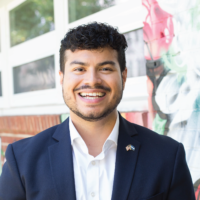January 26, 2022
Patchwork System has Left Anita’s Medical Needs Unmet: It’s Time to Cover All Kids
Across Virginia, 13,000 children are denied access to comprehensive and affordable health coverage because of their immigration status. Families with undocumented children have few avenues to sign up for affordable and comprehensive health coverage and must rely on a patchwork health safety net system but often find that accessing these resources is difficult or impossible.
A pediatrician in Northern Virginia shares the story of Anita* who is just one example of how these challenges play out across the commonwealth:
“Anita is 4-year-old girl who was seen at a Federally Qualified Health Center (FQHC) for tooth pain that she had been experiencing for the past couple of months. The family moved to the U.S. very recently, and the parents paid out of pocket to see a dentist to have her tooth pulled. However, she needed anesthesia for the procedure, which required clearance from a doctor due to her history of seizures. The young girl had been hospitalized and was seen by a neurologist in her home country. She was prescribed two anti-seizure medications which she was still taking. The family was obtaining the seizure medications through a family friend who sent them from South America by way of a courier service. The family didn’t have a rescue medication for breakthrough seizures.

The pediatrician at the FQHC referred Anita to neurology at a prominent children’s hospital. A family support worker at the FQHC assisted the family in completing a financial aid application. However, the parents were subsequently billed for the visit, which made them concerned about their ability to pay for additional appointments and discouraged them from wanting to follow up. An electroencephalogram (EEG) was recommended by the neurologist but this was not approved through charity care. The FQHC tried to get the needed seizure medications at a discounted rate through a federal drug program, but they were very expensive medications and were not available. The FQHC then successfully applied for assistance through the pharmaceutical company, but this only covered a couple of months of medication. The family is continuing to import medications from South America, and the child is seeing a neurologist in South America by video to adjust medication when needed. Anita did eventually see a neurologist again at a hospital system. Unfortunately, the family was told to obtain insurance and then return once this occurred for further management. As they cannot obtain insurance, there is unlikely to be any further workup and no solution in sight to her medication management.”
*the name of the child has been changed to protect her family’s privacy
Cover All Kids
State lawmakers have the tools and the resources to establish Virginia among national leaders in children’s health coverage for all.
Learn More